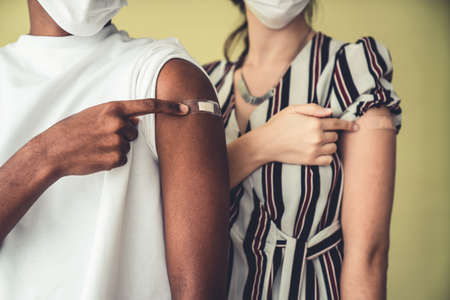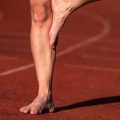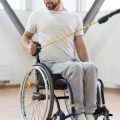Introduction: The Landscape of Post-COVID-19 Recovery in the UK
The COVID-19 pandemic has left a significant imprint on communities across the United Kingdom, changing not only the way we live but also how we approach health and recovery. As case numbers have fluctuated and vaccination efforts continue, an increasing number of individuals are finding that their journey does not simply end with a negative test or discharge from hospital care. In fact, many British people are now navigating a new chapter—one marked by lingering symptoms that can persist for months after the initial infection has resolved.
Among these post-COVID challenges, respiratory issues have emerged as particularly prevalent within the UK population. Shortness of breath, persistent coughs, and reduced exercise tolerance are commonly reported, affecting daily life and overall wellbeing. These long-term symptoms—often referred to as part of “Long COVID”—have been widely recognised by both healthcare professionals and public health authorities, prompting a growing awareness in local communities about the need for specialised support and rehabilitation.
Recovery is rarely straightforward, especially when faced with ongoing breathlessness or fatigue. Individuals across Britain are finding themselves adjusting routines, seeking new forms of support, and grappling with feelings of uncertainty about their future health. This collective experience has led to increased discussions among healthcare providers and patient advocacy groups about how best to adapt traditional pulmonary rehabilitation services to meet the unique needs of those recovering from COVID-19 within the UK context.
As we move forward, it is clear that understanding and addressing these challenges will require compassion, innovation, and collaboration—both at a personal level and throughout our national health system. The British experience thus far highlights not only the resilience of communities but also the importance of tailored approaches in supporting long-term respiratory recovery for all affected by this unprecedented crisis.
2. Understanding Pulmonary Rehabilitation: Core Principles
Pulmonary rehabilitation is a cornerstone of respiratory care in the UK, particularly within the NHS. Its roots can be traced back to mid-20th-century innovations, where clinicians recognised that managing chronic lung conditions required more than medication alone. Over time, pulmonary rehabilitation evolved into a holistic programme combining exercise training, education, and psychological support tailored to each individual’s needs.
Within the NHS context, pulmonary rehabilitation serves as a structured, evidence-based intervention. Its primary aim is to improve the quality of life for people living with long-term respiratory conditions—such as COPD—and now extends to those recovering from COVID-19. Central to its success is a multidisciplinary approach, bringing together physiotherapists, nurses, occupational therapists, and clinical psychologists. The collaborative nature of these programmes helps participants regain physical strength, confidence, and independence after periods of illness or hospitalisation.
Key Components of Pulmonary Rehabilitation Programmes
| Component | Description | Application within NHS |
|---|---|---|
| Exercise Training | Supervised aerobic and resistance exercises designed to increase stamina and muscle strength. | Adapted for group or individual sessions in community or hospital settings; increasingly delivered remotely post-pandemic. |
| Education | Information about condition management, breathing techniques, and medication use. | Delivered by respiratory specialists using culturally appropriate materials tailored for UK patients. |
| Psychosocial Support | Counselling and peer support to address anxiety, depression, and isolation. | NHS teams integrate mental health professionals to provide holistic care. |
| Lifestyle Advice | Guidance on diet, smoking cessation, and activity pacing. | Accessible through one-to-one consultations or workshops in local communities. |
The Evolution of Pulmonary Rehabilitation in the UK
Pulmonary rehabilitation has become an established part of NHS respiratory services. Programmes are widely available across England, Scotland, Wales, and Northern Ireland—though regional variations exist due to local resources. With growing recognition of post-COVID-19 syndrome (long COVID), these programmes have been adapted further to meet new challenges. This evolution demonstrates the NHS’s commitment to personalised care rooted in evidence-based practice and compassionate support for recovery.

3. Tailoring Pulmonary Rehabilitation for Post-COVID Needs
In the United Kingdom, the journey to adapt pulmonary rehabilitation (PR) for individuals recovering from COVID-19 has been shaped by a thoughtful blend of clinical expertise, patient feedback, and the realities of everyday British life. Traditionally, PR programmes were designed to support those with chronic respiratory diseases such as COPD, focusing on physical exercises, breathing techniques, and educational support. However, post-COVID patients often present with a unique combination of symptoms—persistent breathlessness, fatigue, anxiety, and cognitive difficulties—requiring a more nuanced approach.
Reassessing Rehabilitation Priorities
British healthcare professionals have listened closely to the stories of those recovering from COVID-19. Many patients describe feeling “wiped out” by even modest activity or experiencing “brain fog” that makes concentration a challenge. In response, multidisciplinary teams have broadened their focus beyond lung function alone, placing equal emphasis on restoring energy levels, emotional wellbeing, and daily confidence.
Personalised Assessment and Goal Setting
At the heart of this adaptation is a commitment to personalised care—a value deeply rooted in NHS practice. Initial assessments now routinely include screening for post-viral fatigue and mental health needs. Rehabilitation goals are collaboratively set with patients and their families, respecting each individual’s pace and aspirations. This gentle encouragement helps restore hope while acknowledging the unpredictable nature of recovery.
Flexible Delivery and Community Integration
The shift to remote and hybrid delivery models—accelerated by pandemic restrictions—has made rehabilitation more accessible across diverse British communities. Virtual group sessions provide both structure and social connection, drawing on local dialects and cultural references to foster belonging. Home-based exercise plans can be tailored to the realities of British homes and weather, whether it’s walking in a small garden or adapting indoor routines for rainy days.
This evolution in pulmonary rehabilitation demonstrates how British clinical practice honours each patient’s lived experience. By embracing flexibility and compassion, these adapted programmes not only address physical symptoms but also nurture resilience and community spirit throughout the recovery process.
4. Multidisciplinary Approaches and Community Support
The British experience in adapting pulmonary rehabilitation for post-COVID-19 recovery has highlighted the importance of a multidisciplinary approach, where expertise from various health professionals is seamlessly integrated. In the UK, physiotherapists, occupational therapists, respiratory nurses, and clinical psychologists work collaboratively to provide holistic care tailored to each individual’s needs. This team-based strategy ensures that both physical and psychological challenges arising from long COVID are addressed with sensitivity and expertise.
The Integrated Care Team
Pulmonary rehabilitation programmes in the UK have evolved to include a broader range of specialists compared to traditional models. The collaborative effort not only focuses on improving lung function but also supports patients in regaining independence and emotional well-being. Below is an overview of key roles within the multidisciplinary team:
| Specialist | Main Responsibilities |
|---|---|
| Physiotherapist | Guides exercise therapy, breathing techniques, and monitors physical progress. |
| Occupational Therapist | Assesses daily living activities and recommends adaptations for home and work environments. |
| Respiratory Nurse | Manages medication, provides education on symptom monitoring, and offers ongoing support. |
| Clinical Psychologist | Addresses mental health concerns such as anxiety or depression linked to long-term recovery. |
| Dietitian (where available) | Provides nutritional guidance to aid overall health and energy levels during rehabilitation. |
Community-Based Services in the UK
The NHS and local councils across the UK have recognised the significance of community-based services in supporting post-COVID-19 recovery. Social prescribing schemes connect individuals to local resources—such as walking groups, peer support sessions, or volunteering opportunities—to enhance their sense of belonging and motivation. Many regions offer virtual support groups, ensuring continued access regardless of mobility or geographical barriers.
Benefits of Community Integration
- Accessibility: Localised services reduce travel time and increase patient engagement.
- Personalisation: Tailored interventions consider cultural, social, and economic backgrounds common across British communities.
- Sustained Motivation: Regular contact with peers and professionals encourages adherence to rehabilitation plans.
A Gentle Reminder for Patients and Carers
If you or your loved one is navigating post-COVID-19 recovery, do reach out to your local GP practice or NHS service for information about nearby pulmonary rehabilitation programmes. Remember, you are not alone on this journey—your multidisciplinary team and wider community are here to walk alongside you every step of the way.
5. Digital Innovations and Accessibility in British Healthcare
The landscape of pulmonary rehabilitation in the UK has been profoundly shaped by digital innovations, particularly in the wake of the COVID-19 pandemic. As social distancing became a necessity, healthcare providers across Britain swiftly embraced remote delivery methods to ensure that individuals recovering from COVID-19 could continue their rehabilitation safely and effectively.
Expanding Reach Through Remote Delivery
Traditional face-to-face sessions have long been the cornerstone of pulmonary rehabilitation. However, the pandemic highlighted both the need and opportunity for more flexible approaches. The NHS and other healthcare bodies introduced remote programmes, including telephone consultations, video calls, and online classes. These initiatives have proved especially valuable for people living in rural areas or those with mobility challenges, who might otherwise struggle to attend in-person sessions. By removing geographical barriers, digital platforms have allowed more patients to access tailored support without leaving their homes.
Digital Platforms: A New Era for Self-Management
British innovation has also led to the development of user-friendly digital platforms offering guided exercise routines, educational resources, and progress tracking. Apps such as myCOPD and interactive web portals provide ongoing support between clinical appointments, empowering patients to take an active role in their recovery. For many, these tools offer reassurance and a sense of community, bridging the gap between professional guidance and self-management.
Telehealth: Personalised Care Across Diverse Communities
Telehealth consultations have become a vital component of British healthcare’s response to post-COVID-19 needs. Clinicians can now assess symptoms, monitor progress, and adjust rehabilitation plans remotely. This approach not only reduces waiting times but also ensures that vulnerable groups—including older adults, those from ethnic minority backgrounds, and people with disabilities—receive consistent and culturally sensitive care. Translation services and accessible technology features further enhance inclusivity.
Challenges and Ongoing Improvements
While digital advances have opened new doors for pulmonary rehabilitation in the UK, challenges remain. Not all patients are comfortable with technology or have reliable internet access. The NHS continues to address these issues through training, loan schemes for devices, and hybrid models combining digital and face-to-face support. The goal is always to make high-quality pulmonary rehabilitation accessible to every corner of Britain, ensuring no one is left behind on their recovery journey.
6. Patient Voices: Experiences and Outcomes
Personal Journeys Through Adapted Pulmonary Rehabilitation
The journey of recovery from COVID-19 is deeply personal, and nowhere is this more apparent than in the stories shared by patients and their carers across the UK. Adapted pulmonary rehabilitation (PR) programmes have offered a lifeline for many, providing not just physical support, but also emotional reassurance through a challenging time. For Sarah, a 47-year-old teacher from Manchester, joining an online PR group helped her regain confidence in her breathing and mobility after months of persistent breathlessness. She recalls, “At first, I was terrified to even walk to the end of my street. The remote sessions meant I could take part from home, surrounded by people who truly understood.”
Support Networks and Carer Involvement
Carers have played a crucial role in the adaptation process. John, whose wife Helen was hospitalised with severe COVID-19, found that being included in educational sessions allowed him to better support her daily exercises and monitor her progress. “The physiotherapist always took time to answer my questions,” he says. “It made me feel like part of the team.” This inclusive approach, widely embraced in British PR services, has fostered stronger support networks at home, which are vital for sustained recovery.
Outcomes and Lessons Learned
The outcomes reported by post-COVID patients engaging with adapted PR are heartening. Many highlight improvements not only in lung function and stamina but also in mental well-being. According to NHS feedback surveys, participants frequently mention reduced anxiety about breathlessness, better sleep quality, and a renewed sense of independence. While challenges remain—such as digital access for some elderly patients—the overarching sentiment is one of hope and gratitude. These real-life accounts remind us that compassionate care, tailored to local needs and delivered with empathy, remains at the heart of the British healthcare experience.
7. Looking Ahead: Future Directions and Policy Considerations
As the UK continues to navigate the aftermath of the COVID-19 pandemic, it is vital to reflect on the lessons learned from adapting pulmonary rehabilitation (PR) for post-COVID recovery. Ongoing improvements are essential to ensure that PR services remain accessible, equitable, and responsive to the diverse needs of patients throughout Britain. The following suggestions highlight key areas for future development and policy advancement.
Enhancing Accessibility and Inclusivity
Firstly, expanding access to PR programmes across urban, rural, and remote communities should be a priority. This includes investing in digital infrastructure for virtual rehabilitation sessions, providing resources for those who may lack internet access or digital literacy, and ensuring that culturally sensitive care is available for all backgrounds. Collaboration with local authorities and community groups can help identify gaps in service provision and tailor interventions accordingly.
Supporting Workforce Development
The role of skilled healthcare professionals—physiotherapists, nurses, occupational therapists, and respiratory specialists—remains central to effective PR delivery. Ongoing training on the latest evidence-based practices for long COVID management should be supported by national policies and funding streams. Encouraging multidisciplinary teamwork will foster holistic care approaches that address both physical and psychological aspects of recovery.
Data-Driven Policy Making
Robust data collection and analysis are crucial for shaping future strategies. National audits and registries can track patient outcomes, monitor service effectiveness, and identify emerging challenges. Policymakers should prioritise funding for research into innovative rehabilitation models, including telehealth solutions, hybrid programmes, and community-based initiatives tailored to British populations.
Championing Public Health Initiatives
The NHS and public health agencies have a pivotal role in raising awareness about post-COVID syndrome and available support services. Campaigns promoting early intervention, self-management education, and destigmatisation of long-term symptoms can empower individuals to seek help promptly. Furthermore, integrating PR pathways with primary care networks will streamline referrals and facilitate continuity of care.
Policy Recommendations for Sustainable Recovery
- Increase investment in PR services, focusing on underserved regions.
- Develop national guidelines specific to post-COVID rehabilitation needs.
- Foster partnerships between NHS trusts, local councils, charities, and patient advocacy groups.
- Support ongoing professional development for the rehabilitation workforce.
A Compassionate Vision Forward
Ultimately, a compassionate approach underpins every successful recovery journey. By nurturing supportive environments at both policy and community levels, Britain can ensure that post-COVID patients receive the comprehensive care they deserve. As we look ahead, continued collaboration between stakeholders will be key to building resilient systems that safeguard health and wellbeing for years to come.


